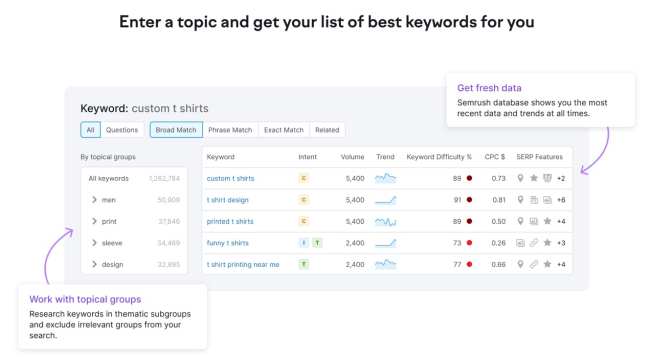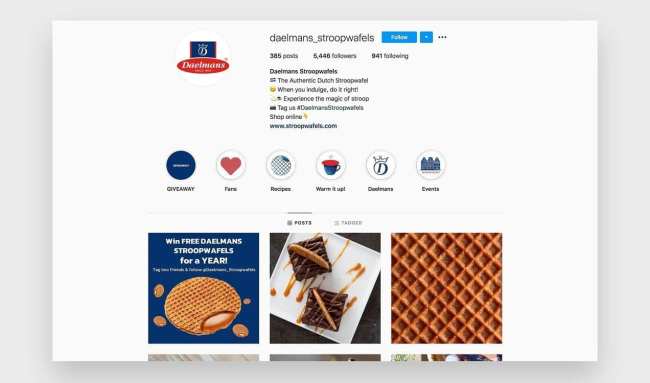If you've just started your e-commerce journey, you might have come across a lot of fancy marketing words like pay-per-click, search engine marketing, user-generated content, SEO, and more. It's important to understand how to promote your store effectively, but there's another way to attract customers that don't require you to spend money - it's called organic traffic. Today, we'll explain the basics of organic and paid traffic and help you start generating genuine interest and momentum for your store.

Introduction To Organic Web Traffic
Organic web traffic happens when people visit your website by clicking on a search result on platforms like Google or Bing without you paying for it. Sometimes, you can pay for ads to appear when someone searches for certain terms, but search engines also show unpaid results, which can bring in natural (organic) traffic.
Apart from organic traffic, there are other types of unpaid traffic that can still benefit your website's organic traffic. These include direct traffic (when someone manually types your website's address), referral traffic (when someone clicks on a link from another website), and social traffic (visits from social media sites).
In this discussion, we will also explore these different types of unpaid traffic and how focusing on improving them can help you achieve your organic traffic goals.
Create Amazing Websites
With the best free page builder Elementor
Start NowImportance Of Organic Traffic
When you understand that organic traffic doesn't come from advertising, you'll realize why it's so important to focus on it. It may seem like it's free, but in reality, generating organic traffic requires a lot of effort. Whether you invest your own time or hire a team, it takes commitment to achieve. However, once you succeed, you can enjoy consistent traffic without ongoing advertising costs. This means your business can become more independent and rely less on ad platforms.
Here are some benefits of organic web traffic:
- You don't pay per click: If your organic pet treats brand appears when someone searches for "organic dog bones," you won't have to pay based on the number of clicks. Whether 100 or 100,000 people click through, it won't cost you anything.
- Independence and stability: If you rely solely on a single ad platform or a couple of platforms for all your traffic and sales, your business's future is in their hands. If you accidentally violate a policy and lose the ability to run ads, you'll be in a tough spot. Additionally, if you need to reduce advertising spending for any reason, organically generated traffic will continue flowing to your store at the same level, while visits from ads will not.
- It shows a healthy business: Organic traffic is the result of natural efforts and momentum from social media mentions, press coverage, and other websites. Growing organic traffic indicates that your business is thriving.
- The leads are valuable: Organic traffic brings visitors to your site who are already interested in your brand, products, or services. These individuals actively search for or have an existing interest in what you offer, making them highly qualified leads.
- It helps build trust: Organic traffic boosts consumer trust in your website because they find you naturally. There are no tricks or paid ads involved, ensuring a seamless online experience. This positions you as a trustworthy and credible option, giving you an edge over the competition.
- Long-term value: The investment you make in your organic traffic strategy pays off in the long run. Eventually, you won't have to spend money for every visitor to your site.
Remember, an organic traffic strategy is a long-term approach. Unlike pay-per-click or other forms of advertising, you won't see an immediate surge in visitors and sales. It takes time to build your online presence and implement a content strategy that reaches the right audience. Organic web traffic requires hard work and patience, but once you're established, you can relax and enjoy the results of your efforts.
How To Generate Organic Web Traffic
Since you are aware of the value of organic web traffic, it's time to get into how to get that traffic and harness its power.
Keyword Research
To get more people to visit your website without paying for ads, you need to be visible when your desired audience is searching for you on search engines. That's where search engine optimization comes in. It's about making your website, content, and reputation better so that it appears when people search for words related to what you provide.
If you want to succeed in SEO, you need to know what you want to appear for when people search online.
These search phrases are called keywords. The broader the keywords are (like "pet toys"), the more people might visit your website. However, there will also be more competition from other websites.
To start, think about your products, where you're located, and other important things. Imagine you're a customer looking for a product or service. What words would you type in the search box? This exercise will help you understand how your customers find you.

Once you have some initial ideas, you can use tools like Semrush’s Keyword Magic and Keyword Overview to find more ideas. These tools will also help you see how popular your ideas are and if there is a lot of competition. This will help you decide if it's worth putting in the effort to get traffic.
You can also use Google's search page or Amazon's search function for research. Just start typing one of your main keyword ideas and see what suggestions come up. Choose the most relevant suggestions and do the search again. Look for the "people also asked" section on Google. What kind of questions are there?
Over time, you can target many keywords. But when you're starting out, it's best to focus on keywords that have less competition. Also, think about what people want when they search. For example, if someone searches for "average pet store revenue in 2023," they might be doing research. But if someone searches for the "closest pet store to Kemper Arena," they might be looking to go there. As a pet store, you want to focus on the second search.
To start, find a good mix of keywords that show high buyer intent, have decent search volume, and face less competition. These will be your first set of keyword targets.
Content Quality
Content is really important when it comes to SEO, which is about making your website rank high on search engines. To achieve this, you need to have good quality content that is consistent and unique.
Why is content so important? Well, search engines like Google use content to understand what your website is all about and how helpful the information is. They want to direct people to sites that have lots of relevant information. This is why having long articles can be beneficial, as they show that you have the expertise and are more likely to provide exactly what people are looking for.
If you're not sure how to start creating content, here are some tips:
- Begin with your target keywords. Type them into search engines and see what your competitors are writing about. Look for the questions people are asking and related searches. Based on what you find, make a list of article ideas.
- Pay attention to the questions you receive on social media or support tickets. Creating content that addresses these questions not only boosts your rankings but also gives you a resource you can quickly share with others in the future instead of answering the same thing repeatedly.
- Create gift lists that feature your products. This can help drive sales and get backlinks when bloggers share your gift guides with their audiences.
- Share behind-the-scenes glimpses of your team, design process, manufacturing, shipping, and other aspects of your business.
- Write guides, eBooks, recipes, or other valuable content that attracts readership while also showcasing your products or services.
Remember, having great content will not only improve your search rankings but also engage and provide value to your readers.
Improve Product Page
Writing compelling product descriptions and creating captivating product pages is incredibly important. When people shop online, almost half of them, around 45%, visit the product detail page before making a purchase. And for 41% of online buyers, this page has the most significant influence on their decision to buy.
To boost your ecommerce website's traffic and increase conversions, you can optimize your product description pages in a few ways. Add photos, videos, reviews, and detailed descriptions that encourage your audience to make a purchase.
Improving your search rankings is another essential aspect. One simple way to do this is by including your primary keyword in the URL of your product pages. Additionally, make sure to incorporate your primary keyword into section headers, page titles, meta descriptions, alt text, and page content. However, it's crucial not to overdo it. Avoid "keyword stuffing" by providing valuable content and writing naturally. Both customers and search engines can tell when you're forcing keywords, and it's generally not appreciated.
One effective method to generate more valuable content with naturally integrated search terms is by focusing on your product descriptions. Don't settle for a single sentence. Take the time to thoroughly describe every detail. Share a compelling story or include quotes from industry articles that praise the product. Avoid copying and pasting the same description from similar products, as search engines don't like duplicate content.
Use Target Keywords
Using only keywords on your product pages and blog posts isn't enough. You should also include them in other parts of your website and link them to relevant pages. For instance, in this sentence, we can link the term "ecommerce platform" to our homepage to make it more prominent when people like you search for tools to achieve their goals.
When it comes to product pages, it's important to be specific with the keywords you choose and target. On other pages, you can be more general. For example, you may want your homepage to rank high for the keyword "music equipment," category pages for "Fender guitars," and a product page for "Fender Player Telecaster Butterscotch Blonde."
Here are some places where you should include keywords:
- Page titles: Use keywords in the titles of your pages.
- URLs: Incorporate keywords in the website addresses.
- Title tags (meta titles): Add keywords in the title tags that appear in search engine results.
- H1 headings: Include keywords in the main headings of your pages.
- At least two H2 headings: Use keywords in subheadings.
- Within your website content and blog posts: Incorporate keywords naturally within the text.
- The first 100 words of posts and landing pages: Include keywords near the beginning of your content.
- Image file names: Use keywords in the names of your image files.
- Image alt text: Add keywords in the alternative text for images.
- Meta descriptions: Include keywords in the short descriptions that appear in search results.
- Link anchor text: Use keywords in the text that links to other pages.
Maintain Technicality
Search engines like Google want to make sure that when they send people to your website, they find relevant content and have a safe and enjoyable experience. This is why search engines consider the technical aspects of websites when determining their rankings. Here are some important things to remember if you want to improve your website's rankings from a technical standpoint:
- Make your website mobile-friendly: Your website should be able to adjust to different screen sizes so that visitors can easily access it on their phones or desktops. Since more than 60% of website traffic comes from mobile devices, search engines prioritize mobile responsiveness.
- Ensure fast loading speed: People don't like to wait for a website to load. Your site should load within a few seconds. Tools like Jetpack Boost can help you measure your site's performance and suggest ways to improve its speed. Another option is Google's PageSpeed Insights, which assesses your site's technical status and offers suggestions for improvement.
- Provide a good user experience: Your website should have easy navigation and an intuitive checkout process. Customers have limited patience, so if they can't find what they need or struggle to use important features, they will leave. Jetpack Search can assist visitors in quickly finding what they are looking for. You should also review and enhance your Core Web Vitals, which are essential metrics that Google uses to evaluate user experience.
- Ensure a safe environment: Make sure your website has an SSL certificate to establish a secure connection, and utilize tools to protect against malware, spam, and other security risks. You can learn more about WooCommerce security basics to safeguard your site and customer information.
- Add rich snippets: Rich snippets provide additional information to search engines about specific types of content on your web pages. This helps search engines understand your website better, and the extra information can also be displayed in search results. Rich snippets attract the attention of searchers and have been shown to increase click-through rates.
Share Guest Post With Other Websites
It's important to have fresh and high-quality content on your website to improve your SEO and attract more organic traffic. Other organizations in your industry also need this kind of content. You can partner with them to exchange guest blog posts. This helps you build links to your site, which tells search engines that trustworthy sources related to your niche trust you as a reliable information provider. Links are an important factor for search engine rankings, but they can be challenging to obtain.
When choosing partners, be careful and open with your audience. Ensure that your partners have your audience's best interests in mind and will fulfill their commitments. Make sure their websites follow basic security and performance practices. Linking to or partnering with low-quality or spammy sites can harm your reputation and rankings.
You can reach out to websites manually, or you can use tools like HARO to find opportunities to provide value to reporters and journalists. In exchange, they may link to your site. This is a great way to gain credibility with search engines, especially since many journalistic sites have high domain authority.
Use Social Media
Social media may not directly impact your website's SEO, but it can contribute to generating traffic in other ways. While search engines don't consider social media as a major ranking factor, it can help improve your online presence and reputation, which indirectly affects your search engine standing.
Think of social media as a tool to earn unpaid traffic and support your organic search traffic efforts. By engaging with your target audience on social media platforms, you can attract visitors to your website. There are numerous opportunities to connect with your audience, such as through Facebook groups, TikTok LIVE sessions, and popular hashtags on Twitter and Instagram.

To make the most of social media, focus on consistently providing valuable content that your audience engages with. Rather than solely promoting your products, concentrate on enhancing the overall user experience. You can promote your website content through social media, create unique media specifically for social channels, and collaborate with influencers to expand your reach.
Building a following on social media allows you to occasionally promote your products or sales, but make sure to prioritize community engagement and helpful advice. Encourage audience participation through sharing, liking, and commenting to receive special offers or participate in giveaways.
Over time, you'll see the impact of social media through the increase in natural, unpaid traffic to your website. By leveraging social media effectively, you can attract hundreds of thousands of visitors each month, thanks to loyal fans spreading the word about your brand.
Track Your Traffic
It's really important to keep an eye on how many people visit your website. You need to know what's going well and what needs improvement. It's also exciting to see your website's traffic increase over time from search engines, social media, and other sources.
Using analytics tools can help you understand what people are interested in when they visit your site. This information can help you make the experience better, so more people will do things like sign up for your email list or buy your products.

There are different ways to track these statistics, and it's a good idea to use more than one method. Jetpack Site Stats is helpful for basic information, but Google Analytics is the most popular and powerful free tool. It gives you detailed information about the different types of traffic we mentioned earlier (like organic search, referral, and social).
As your online store grows, it becomes even more important to understand your website's statistics.
Final Words
Advertising is really useful, and you'll likely always use paid promotions to some extent. However, it's also important to focus on getting more natural traffic to your store. This means working hard, creating value, and being a positive part of your community. When you earn this kind of traffic without paying for it, it helps your business in the long run and brings more success and personal satisfaction. It won't happen instantly, but it's definitely worth the effort. If you haven't started yet, take a small step today towards getting this kind of traffic.




